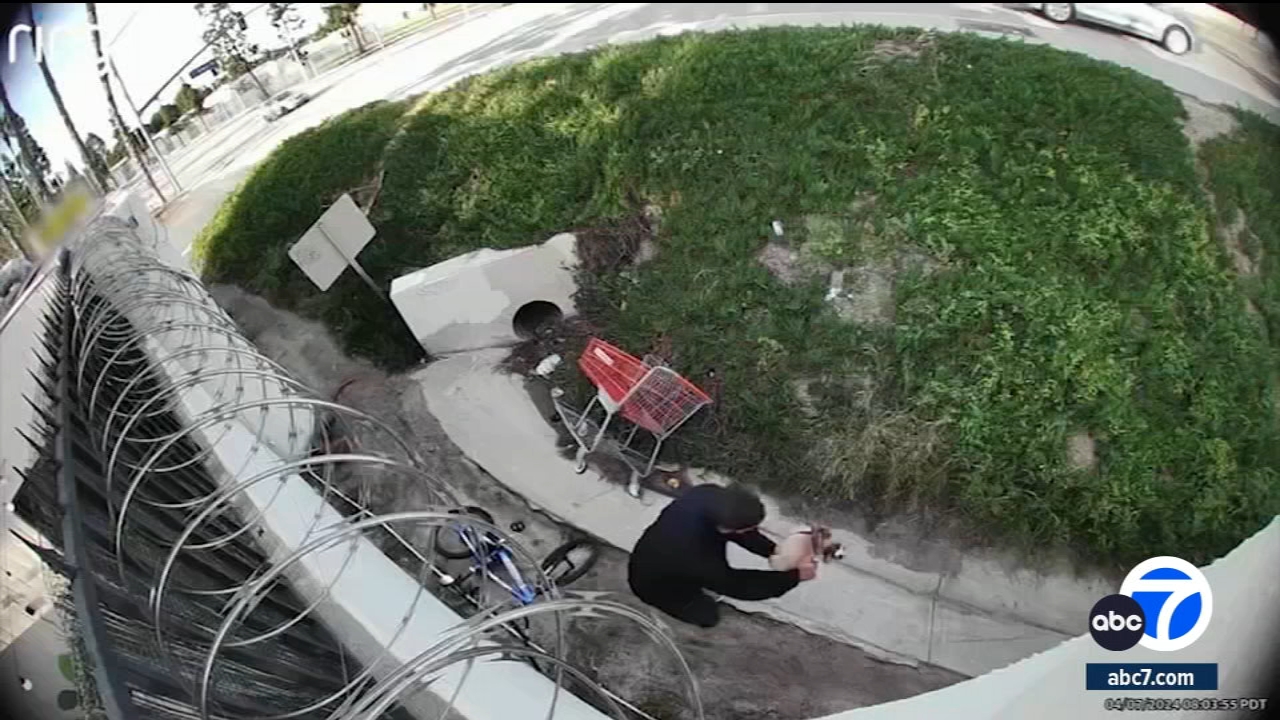Rodney King beating: 30 years later, incident remains a seminal part of LA history
King family members marked the anniversary of his beating by feeding over 500 low-income families in Watts on Wednesday.

LOS ANGELES (KABC) -- Thirty years ago Wednesday, plumber George Holliday was asleep in his Lake View Terrace apartment when he was awakened by a commotion outside so loud it prompted him to grab his video camera and walk to his balcony to see what was amiss.
With a hovering Los Angeles Police Department helicopter's spotlight providing the illumination, the scene Holliday captured with his Sony Handycam changed history.
It was March 3, 1991, and through the lens of his camera, Holliday recorded four white Los Angeles police officers using batons, Tasers, feet and fists to beat a Black man later identified as Rodney King, whose name quickly became globally synonymous with police brutality.
King, an unemployed construction worker who had been drinking and was on probation for a robbery conviction, was instructed to pull over for speeding on a Los Angeles freeway. He eventually stopped his car in front of Holliday's apartment building, where Los Angeles police took charge of the traffic stop that devolved into a violent confrontation as officers trying to subdue King pounded on him repeatedly, as others looked on.
King was left with skull fractures, broken bones and teeth and permanent brain damage.

Holliday, who recorded the beating just after midnight, contacted KTLA later that day. The station became the first to air the footage that would be seen across the globe, becoming what would today be considered a viral video.
The video led to upheaval within the Los Angeles Police Department, sparking calls for the ouster of then-Chief Daryl Gates and prompting the appointment of the Christopher Commission to examine the inner workings of the LAPD and allegations of excessive force and institutional racism.
When the four officers involved in the King beating were acquitted a year later of excessive use of force by a jury in Ventura County, five days of rioting ensued in Los Angeles, resulting in 54 deaths, some 2,400 injuries, scores of destroyed buildings and other property damage, and more than 12,000 arrests. The acquitted police officers were later convicted of violating Rodney King's civil rights in a federal court trial.
On Wednesday afternoon, the LAPD, acknowledging the 30-year anniversary of the King beating, released a video highlighting changes made in the department over the past three decades.
Capt. Stacy Spell narrates the video, which discusses revisions to the agency's use-of-force policies, the use of non-lethal weapons to subdue subjects, elimination of choke holds, changes requiring officers to intervene and report misconduct, the use of body cameras and intensive disciplinary process.
"Today's and tomorrow's LAPD is vastly different as we reflect on the Rodney King incident 30 years later,'' Spell says in the video. "One area where this is evident is the department's high use-of-force standards. There's been a revamp of the how the department investigates, reviews and adjudicates use-of-force incidents."
The two-and-a-half-minute video concludes with the words, "30 years after the Rodney King incident, the Los Angeles Police Department is reimagined and dedicated to protect and to serve all Angelenos."
King, a Sacramento native, died in Rialto on June 17, 2012, of what was described as an accidental drowning. He was 47. Before his death, he authored "The Riot Within: My Journey from Rebellion to Redemption."
The grainy footage Holliday shot that night made the then-31-year-old plumber a pioneer of citizen journalism. The Sony video camera used to record the episode went up for auction last July, with bidding starting at $225,000, but it was unclear if it was ever sold.
In April 2019, King's daughter, Lora King -- who was 7 years old when her father was beaten, and 8 when the urban unrest started in L.A. -- began the "I Am A King" scholarship to celebrate black fathers.
LA City Council allocates funds cut from LAPD to policing alternatives, homelessness prevention

In 2016, she created an organization in his honor, The Rodney King Foundation. Lora King and other King family members marked the 30th anniversary of his beating by feeding over 500 low-income families in Watts on Wednesday. The event was sponsored by The Rodney King Foundation.
If her father were alive today, Lora said this is what he would have to say:
"Thirty years is along time to still be asking the same question, because nothing has changed (except) the date and the name," she said. There are other Rodney Kings and other George Floyds and I'm sure tomorrow will be somebody else. And the question is why are we still here? Why can't we get along?"
Los Angeles Congresswoman Karen Bass wrote an editorial for USA Today expressing her views on what's happened since the King beating.
"The bottom line is that no one ever believed what we said was happening with the Los Angeles Police Department. And I felt confident that once the world saw that video that it would lead to transformative change in policing," she told Eyewitness News.
Three decades later, she's leading an effort to pass the George Floyd Justice and Policing Act.
"There are provisions in the bill that support police department in terms of calling for accreditation and training," Bass said. "And there's a part of the bill that supports communities, providing grants to communities to re-envision policing."
City News Service contributed to this report.





